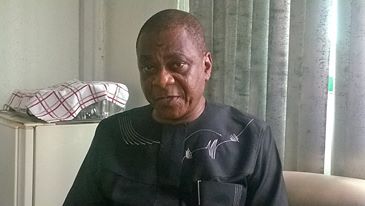The President, National Council of Managing Directors of Licensed Customs Agents (NCMDLCA), Mr. Lucky Amiwero has called on the Federal Government to revisit the ban on importation of vehicles through the nation’s land borders with a view to giving the importers 90 days grace period to clear their trapped vehicles at the various borders.
Amiwero who made this call in a letter he addressed to President Muhammadu Buhari and copied to the Vice President and 10 others recalled that about ten thousand (10,000) motor vehicles were held up at various land borders, which according to him were legal entry points in the clearance of goods.
He maintained that land boarders were legal entry points recognized as legitimate points by the Federal government under the Import Guideline and the Destination Inspection on agreement for the provision of X-ray Scanning Equipment as process centre for the collection of import duties and other charges, which included motor vehicles and other goods.
The NCMDLCA boss observed that the ban stopping importation of vehicles through the land border contravened the World Trade Organization (WTO) Articles X on publication and application of trade regulations.
According to him,” The provision as contained in the above Convention stipulates that each contracting party shall provide opportunities and an appropriate time period for traders and other interested parties to comment on the proposed introduction or amendment of laws and regulations of general application related to the movement, release, and restriction of transit goods.
“As stipulated in the WTO convention, trade regulations and amendments with regards to restriction and reversal of Fiscal Policy on trade, must be subject to process of consultation by trading public and transparency in the timing, so as to accommodate the challenges that will be associated with the directive/regulation.
“The restriction of vehicles through the land border is with a very short notice, which contravenes the convention and global best practice on reasonable information across the international community, carrier, and shippers, traders etc. that are directly affected by the decision”.
He argued that the held up vehicles at the border were not in Nigerian territory but were Nigerian assets owned by Nigerians abroad and trading community that had worked and sent such vehicles to their mothers, fathers, sisters and brothers and decided to use the land border, which he said was a legal entry point for the process and assessment of goods, due to high cost of clearance in Nigerian ports.
He added that such action would greatly affect the Nigerians abroad and the trading community that would lose the vehicles to neighboring states as such vehicles had undergone the transit process to the border for the normal payment of import duty and to conclude the customs formalities, which he said cannot be reshipped back to Nigeria as freight payment and transit procedure has been concluded.
Amiwero further pointed out that most of the states in the north were entirely or almost enclosed by land (landlocked) entailing that they had no shoreline on open sea or fresh water bodies but for only land border approved as legal entry point in the north, which he said would greatly affect trade to the north and eventually effect employment.
The President also remarked that Nigerian ports clearance process parade the highest port cost within the sub –region that were duplicated and not tied to services, such as Terminal Handling Charges (THC) and Terminal Delivery Charges (TDC), which he disclosed had been cancelled by Ghana Government recently so as to comply with the contract of carriage by Sea and the reduction of cost in their ports.
Other factors according to him are; the shipping companies charges that were not tied to service, which was recently increase without government intervention as Government and port Tax and other charges, the storage charges both shipping companies and Terminal operators that were increased at will, the multiplicity of agencies on regulation, gridlock on the port access road and the completely breakdown of scanners in all the ports.
“Motor Vehicles held up at the border are mostly legitimate goods that are legally processed from the land borders as authorized by the Federal Government under the Federal Government Import regime, which import duty is assessed and paid into Federal Government account legally.
“Globally, grace period is extended due to challenges associated with the restrictions and structural changes that affects Import and Export Fiscal policy measure as detailed below:
(i) The need to look at the Commitment of payment and transaction entered into by the buyer/seller months well in advance on most of the Motor Vehicles at the Land border that are held up.
(ii) The need to look at the date and country of shipment of most Motor vehicles as it relates to distance i.e. Far-East Country e.g. China, USA, Canada, Russia, Singapore, UK etc. with various routes that will take months to arrive the Transit Port
(iii) Late arrival of the Carrying Vessel as a result of transshipments from larger vessels to feeder vessel and Transit procedure to the Boarder due to our port draft.
(iv)Tramp vessel carriages from port to Port without advertised date.
(v) Transfer process from the Wet port to various Land Borders across Nigeria that legally process, assess and collect legitimate duties on the Vehicles.
(vi)The Limited time of information and the restriction of information to the trading public and personal vehicle owners that are shipped without information of the restriction.
“The global practice of grace period was adopted by the Federal Ministry of Finance in Circular e.g. BD.1237/s.403/PT./16 & BD.12237/s.403T.1/66 for ninety (90) Days grace period, which resolved the challenges as state above”, he stated.
Send your news, press releases/articles as well as your adverts to info@primetimereporters.com. Also, follow us on Twitter @reportersinfo and on Facebook on facebook.com/primetimereporters or call the editor on 07030661526, 08053908817.

